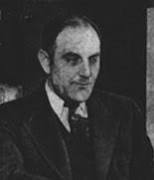Top 20 Scammers Fraudsters (11 to 20)
Previous
11. Victor Lustig

Name: Victor Lustig
Other name:
Born: 4 January 1890
Whether dead or alive: 11 March 1947 (aged 57)
Age:
Country:
Occupation: Confidence artist
Criminal / fraud / scam charges: Scamming
Criminal / fraud / scam penalty: 20 years imprisonment
Known for:
Victor Lustig was a notorious con artist known for his clever and audacious schemes in the early 20th century. He is often cited as one of the most accomplished con men in history. Here are some key points about Victor Lustig:
- Early Life: Victor Lustig was born on January 4, 1890, in Austria-Hungary (now the Czech Republic). He later adopted various aliases and nationalities, making it difficult to trace his true background.
- The Man Who Sold the Eiffel Tower: Lustig's most famous con involved the sale of the Eiffel Tower in Paris. In 1925, he posed as a government official and convinced a group of scrap metal dealers that the French government planned to dismantle the Eiffel Tower due to high maintenance costs. He offered to sell it to them at a discounted price, and they paid him a substantial sum. Of course, the entire story was fabricated, and Lustig promptly disappeared with the money.
- Counterfeiting Operation: Lustig was also involved in counterfeiting operations, producing fake money and passing it off as genuine. He assembled a team of skilled forgers to carry out this illegal enterprise.
- Arrests and Escapes: Despite his criminal activities, Lustig managed to evade capture for extended periods. When he was finally apprehended, he often used his wit and charm to manipulate authorities. He escaped from custody multiple times.
- Death: Lustig's criminal career eventually caught up with him. He was captured by the FBI in 1935 and sentenced to 20 years in Alcatraz Federal Penitentiary for counterfeiting. He died in prison on March 11, 1947, reportedly from pneumonia.
- Legacy: Victor Lustig's audacity and cunning in carrying out his cons have made him a legendary figure in the world of criminal history. His exploits continue to be studied and recounted as examples of masterful deception.
Victor Lustig's life story serves as a testament to the power of charm, charisma, and creativity in the world of criminal deception. He was able to exploit the trust and greed of his victims to carry out some of the most audacious cons in history.
12. Marc Stuart Dreier

Name: Marc Stuart Dreier
Other name:
Born: May 12, 1950 (age 73)
Whether dead or alive:
Age:
Country: American
Occupation: Former attorney
Criminal / fraud / scam charges: Securities fraud, Wire fraud, Money laundering
Criminal / fraud / scam penalty: 20 years imprisonment
Known for: Fraud
Marc Stuart Dreier is an American former attorney who became infamous for orchestrating a massive fraud scheme in the mid-2000s. Here are some key points about Marc Stuart Dreier:
- Early Career: Dreier was born on May 12, 1950, in Long Island, New York. He earned a law degree from Harvard Law School and subsequently embarked on a legal career.
- Founding of Dreier LLP: In 1996, Dreier founded the law firm Dreier LLP, which initially specialized in real estate law. Over time, the firm expanded and began to handle a broader range of legal matters.
- Ponzi Scheme: In the mid-2000s, Dreier engaged in a massive fraud scheme, similar to a Ponzi scheme. He falsely claimed that his firm was involved in lucrative legal settlements and that he needed to raise funds to finance these settlements.
- Fabricated Promissory Notes: Dreier created fictitious promissory notes and forged signatures of prominent individuals and entities, claiming they were investing in the settlements. He used these notes to secure loans from hedge funds and other investors.
- Financial Troubles: As the scheme grew, so did the amount of money involved. Dreier's fraudulent activities eventually caught up with him, as the financial crisis of 2008 made it increasingly difficult to sustain the scheme.
- Arrest and Conviction: In December 2008, Dreier was arrested by authorities for his fraudulent activities. In 2009, he pleaded guilty to multiple charges, including conspiracy, securities fraud, and money laundering.
- Sentencing: In July 2009, Marc Stuart Dreier was sentenced to 20 years in federal prison for his role in the fraud scheme. He was also ordered to pay restitution to the victims.
- Disbarment and Disgrace: Dreier's legal career came to an abrupt end, as he was disbarred following his conviction. His actions brought immense disgrace to the legal profession and the reputation of his former law firm.
Marc Stuart Dreier's case stands as a stark reminder of the consequences of white-collar crime and the importance of ethical conduct within the legal profession. His fraudulent activities not only harmed investors but also tarnished the trust and reputation of the legal community.
13. James Hogue

Name: James Arthur Hogue
Other name: Jay Mitchell Huntsman, Alexi Indris-Santana
Born: October 22, 1959 (age 64)
Whether dead or alive:
Age:
Country: American
Occupation: Con man
Criminal / fraud / scam charges:
Criminal / fraud / scam penalty:
Known for: Entering Princeton University under a false identity.
James Arthur Hogue is an American impostor and con artist known for assuming false identities and engaging in deceptive behavior, particularly in educational and athletic settings. Here are some key points about James Arthur Hogue:
- Hogue gained notoriety in the 1980s for successfully posing as a high school student in Palo Alto, California. He enrolled in a local high school under the false identity of "Jay Mitchell Huntsman" and claimed to be an orphan from a Nevada ranch.
- While posing as a student, Hogue excelled academically and even joined the school's cross-country team. He maintained his ruse for several months before being discovered.
- In the late 1990s, Hogue again assumed a false identity, this time as "Alexi Indris Santana," and applied to Princeton University. He claimed to be a self-taught rancher from Nevada. He was admitted and attended Princeton for several months before being discovered.
- Hogue's deceptive activities led to criminal charges, including theft, forgery, and false representation. He faced legal consequences for his actions.
- Hogue's history includes several instances of assuming false identities, not only in educational settings but also in outdoor and athletic communities. He often portrayed himself as an expert in various fields.
- Hogue's story garnered significant media attention due to the audacity of his deceptions and the multiple instances in which he successfully infiltrated educational institutions.
- Despite facing legal consequences for his actions, Hogue continued to engage in deceptive behavior and assume false identities after serving time in prison.
- James Arthur Hogue's case raises questions about the vulnerabilities in educational and institutional systems that allowed him to successfully assume false identities. It also highlights the complexities of dealing with repeat offenders who engage in such deceptive behavior.
Hogue's history of impersonation and deception has made him a subject of fascination and study for those interested in the psychology and motivations behind such behavior. His story serves as a cautionary tale about the need for vigilance in verifying identities, especially in educational and institutional settings.
14. George C. Parker

Name: George C. Parker
Other name: James J. O'Brien, Warden Kennedy, Mr. Roberts, Mr. Taylor
Born: March 16, 1860
Whether dead or alive: 1936
Age:
Country: U.S
Occupation: Con man
Criminal / fraud / scam charges: Best known for his attempts to "sell" the Brooklyn Bridge.
Criminal / fraud / scam penalty:
Known for:
George C. Parker was a notorious American con artist who operated in the early 20th century. He gained infamy for his audacious and prolific real estate scams in New York City. Here are some key points about George C. Parker:
- George C. Parker was born in the late 19th century, and little is known about his early years. He was known to be a charismatic and persuasive individual.
- Parker was infamous for his ability to convincingly pose as a real estate agent. He would approach unsuspecting individuals, claiming to be the owner of well-known landmarks and properties in New York City, such as the Statue of Liberty, Madison Square Garden, and even the Brooklyn Bridge.
- Parker would offer these landmarks for sale to his victims, promising them ownership rights and potential lucrative returns on their investment. He often used forged documents to lend credibility to his claims.
- Parker's audacity and reputation for selling landmarks he did not own earned him a place in the annals of American criminal history. He was known as one of the boldest con men of his time.
- Over the years, Parker was arrested numerous times for his fraudulent activities, but he was skilled at avoiding serious punishment. He would often be released on bail and then resume his scams.
- George C. Parker's name has become synonymous with real estate fraud and confidence schemes involving famous landmarks. His story is often cited in discussions about the audacity of confident artists and the importance of due diligence in real estate transactions.
- Parker's luck eventually ran out. He was finally convicted of fraud in 1928 and sentenced to life in prison. He served his sentence at the infamous Sing Sing Correctional Facility in New York.
George C. Parker's career as a con artist has left a lasting legacy in the annals of American criminal history. His audacious real estate scams and ability to convince victims to buy landmarks they could never own remain a testament to his remarkable persuasive abilities.
15. Sante Kimes

Name: Sante Kimes
Other name:
Born: July 24, 1934
Whether dead or alive: May 19, 2014 (aged 79)
Age:
Country: American
Occupation: Con artist
Criminal / fraud / scam charges:
Criminal / fraud / scam penalty: Life in prison, New York State; Life in prison, California
Known for:
Sante Kimes was an American criminal who, along with her son Kenneth Kimes, was involved in a series of notorious crimes in the late 20th century and early 21st century. Here are some key points about Sante Kimes:
- Sante Kimes was born on July 24, 1934, in Oklahoma, USA. She later became known for her criminal activities and fraudulent behavior.
- Sante Kimes had a long history of criminal activities, including theft, fraud, and arson. She often used various aliases and false identities to carry out her schemes.
- Sante Kimes' most infamous criminal endeavors involved her son, Kenneth Kimes. Together, they engaged in a variety of criminal activities, including fraud, identity theft, and murder.
- Notorious Crimes:
- Irene Silverman Case: One of the most high-profile cases involving Sante Kimes was the disappearance and presumed murder of Irene Silverman, a wealthy New York socialite, in 1998. Sante and Kenneth posed as potential renters interested in Silverman's townhouse and later killed her.
- Other Crimes: The Kimes duo was linked to other crimes, including thefts, frauds, and even attempting to steal a mansion in California.
- Sante and Kenneth Kimes were eventually apprehended in 2000. They were convicted of numerous charges, including murder, and received lengthy prison sentences.
- Legal Proceedings and Imprisonment:
- Sante Kimes: She was convicted of murder and other charges and was sentenced to 125 years in prison. She died in prison on May 19, 2014.
- Kenneth Kimes: He was also convicted of murder and other charges. He received a 124-year prison sentence. Kenneth Kimes died in prison on November 13, 2014.
- The Kimes case received extensive media coverage due to the audacity and ruthlessness of their crimes, as well as their use of manipulation and deception to carry out their schemes.
Sante Kimes' criminal activities, particularly her involvement in the Irene Silverman case, have made her a notorious figure in the realm of true crime. Her story serves as a chilling example of the lengths some individuals will go to for financial gain, often at the expense of innocent lives.
16. Matt the Knife

Name: Matt the Knife
Other name:
Born: 1988 (age 34?35)
Whether dead or alive:
Age:
Country:
Occupation: Mentalist, magician, speaker, comedian, escapologist, former con artist
Criminal / fraud / scam charges:
Criminal / fraud / scam penalty:
Known for:
"Matt the Knife" is a nickname that has been associated with several individuals involved in criminal activities, particularly those related to theft, fraud, and scams. It is not a specific person's name but rather a moniker that has been used to refer to various individuals engaging in illicit behavior. The name "Matt the Knife" may be a play on the famous song "Mack the Knife" from the musical "The Threepenny Opera.
It's worth noting that different individuals may have adopted or been given this nickname at different times and in different contexts. Therefore, any specific reference to "Matt the Knife" would likely pertain to a particular individual or case. If you have a specific "Matt the Knife" in mind or a particular case you're interested in, please provide more context or details, and I'll do my best to assist you.
17. Steven Kunes

Name: Steven Kunes
Other name:
Born: 1956
Whether dead or alive:
Age:
Country: American
Occupation:
Criminal / fraud / scam charges:
Criminal / fraud / scam penalty:
Known for: Convicted conman
As of my last knowledge update in January 2022, I do not have specific information on an individual named Steven Kunes. It's possible that Steven Kunes is not a widely recognized public figure up until that time.
If Steven Kunes is a private individual or has gained prominence after January 2022, I would not have information on them. If there have been significant developments related to Steven Kunes after January 2022, I would not be aware of them. Please provide more context or specify the field or area of interest associated with Steven Kunes, and I'll do my best to assist you based on the information available up until January 2022.
18. Steven Jay Russell

Name: Steven Jay Russell
Other name:
Born: December 31, 1957 (age 65)
Whether dead or alive:
Age:
Country: American
Occupation: Con artist
Criminal / fraud / scam charges:
Criminal / fraud / scam penalty:
Known for: Multiple successful escapes from several prisons
Steven Jay Russell is an American con artist and former prison escape artist known for his audacious escapes from various correctional facilities. Here are some key points about Steven Jay Russell:
- Early Life: Steven Jay Russell was born on September 14, 1957, in South Carolina, USA.
- Criminal Career: Russell's criminal activities primarily revolved around fraud and deception. He was known for assuming false identities and engaging in various cons.
- Escapes: Russell gained notoriety for his remarkable ability to escape from different prisons. He used a combination of elaborate ruses, forged documents, and impersonations to carry out his escapes.
- The Conductor: One of Russell's most famous escapes involved him impersonating a prison guard and convincing the prison staff to release him under the false pretense that he was an undercover prison inspector. This escape earned him the nickname "The Conductor."
- Relationship with Phillip Morris: While in prison, Russell developed a romantic relationship with fellow inmate Phillip Morris. Their story was later adapted into the film "I Love You Phillip Morris," which portrayed the complexities of their relationship and Russell's escapades.
- Legal Consequences: Russell's escapes and criminal activities led to multiple convictions and lengthy prison sentences. He spent a significant portion of his life incarcerated.
- Impact and Legacy: Russell's life story has garnered significant media attention due to the audacity of his escapes and his unconventional relationship with Phillip Morris. His case has been the subject of numerous articles, books, and the aforementioned film.
- Post-Prison Life: As of my last knowledge update in January 2022, Russell was still serving his sentence. His story continues to be a source of fascination and discussion regarding prison security, the psychology of escape artists, and issues related to the incarceration of LGBTQ individuals.
Please note that there may have been further developments in Steven Jay Russell's story after January 2022, and I would not have information on those.
19. Kevin Trudeau

Name: Kevin Trudeau
Other name:
Born: 1962 or 1963 (age 60?61)
Whether dead or alive:
Age:
Country: American
Occupation: Author, radio and television personality
Criminal / fraud / scam charges: Fraud, larceny and contempt of court Regulatory settlements with the FTC and eight state attorneys general for false claims and misleading representations
Criminal / fraud / scam penalty:
Known for: Promoting alternative medicine and questionable diet and financial remedies Founding the International Pool Tour
Kevin Trudeau is an American author, infomercial personality, and convicted fraudster. He gained notoriety for his prolific promotion of various health and self-help products through infomercials and books. Here are some key points about Kevin Trudeau:
- Early Career: Trudeau started his career in sales and marketing, working for various companies and ventures.
- Natural Cures "They" Don't Want You to Know About: One of Trudeau's most famous books, published in 2004, claimed to reveal natural remedies and cures for a wide range of diseases and health conditions. The book was a bestseller, but it also drew significant criticism from medical professionals for its unproven claims.
- Legal Troubles and Regulatory Actions: Trudeau faced numerous legal challenges and regulatory actions throughout his career. He was repeatedly fined and sued for deceptive advertising and making false claims in his infomercials and books.
- Federal Trade Commission (FTC) Lawsuit: In 2003, Trudeau was sued by the FTC for making false and misleading claims in his infomercials. The lawsuit resulted in a settlement that required Trudeau to pay a substantial fine and refrain from making false claims in his future marketing efforts.
- Criminal Conviction: In 2013, Kevin Trudeau was convicted of criminal contempt of court for violating the terms of the settlement with the FTC. He had continued to promote products and make deceptive claims despite the court order. He was sentenced to ten years in federal prison.
- Imprisonment: Trudeau served time in federal prison for his criminal contempt conviction. As of my last knowledge update in January 2022, he was still serving his sentence.
- Public Reception: Trudeau's controversial career and legal troubles have made him a polarizing figure. While some people believe in his alternative health advice, others view him as a fraudster who exploited vulnerable consumers.
- Impact on Consumer Protection Laws: Trudeau's legal battles with the FTC and subsequent conviction have had an impact on consumer protection laws, particularly in relation to the regulation of infomercials and the enforcement of court orders.
Kevin Trudeau's career is often cited as an example of the challenges in regulating the marketing of health and self-help products, and his case has contributed to discussions about consumer protection and deceptive advertising practices. Please note that there may have been further developments in his story after my last knowledge update in January 2022.
20. Anna Sorokin

Name: Anna Sorokin
Other name: Anna Sorokina, Anna Sorokin-Delvey, Anna Delvey
Born: January 23, 1991 (age 32)
Whether dead or alive:
Age:
Country: Russian
Occupation:
Criminal / fraud / scam charges: Grand larceny, second-degree larceny, theft of services
Criminal / fraud / scam penalty: 4 to 12 years imprisonment, $24,000 fine, $199,000 restitution, deportation to Germany
Known for:
Anna Sorokin, also known as Anna Delvey, is a Russian-born con artist who posed as a wealthy New York socialite. She claimed to be a wealthy German heiress with a trust fund that could cover her lavish lifestyle. Sorokin stayed in luxury hotels, dined at expensive restaurants, and attended exclusive events, often without actually paying for her bills.
Her story gained significant media attention, and in 2019, she was convicted of theft of services and grand larceny for scamming hotels, restaurants, and banks out of hundreds of thousands of dollars. She was sentenced to 4-12 years in prison and ordered to pay restitution and fines. Sorokin's case received widespread coverage and sparked discussions about privilege, socialite culture, and the legal system.
In addition to her legal troubles, Sorokin's story has been the subject of articles, books, and a Netflix series called "Inventing Anna" based on her life.


